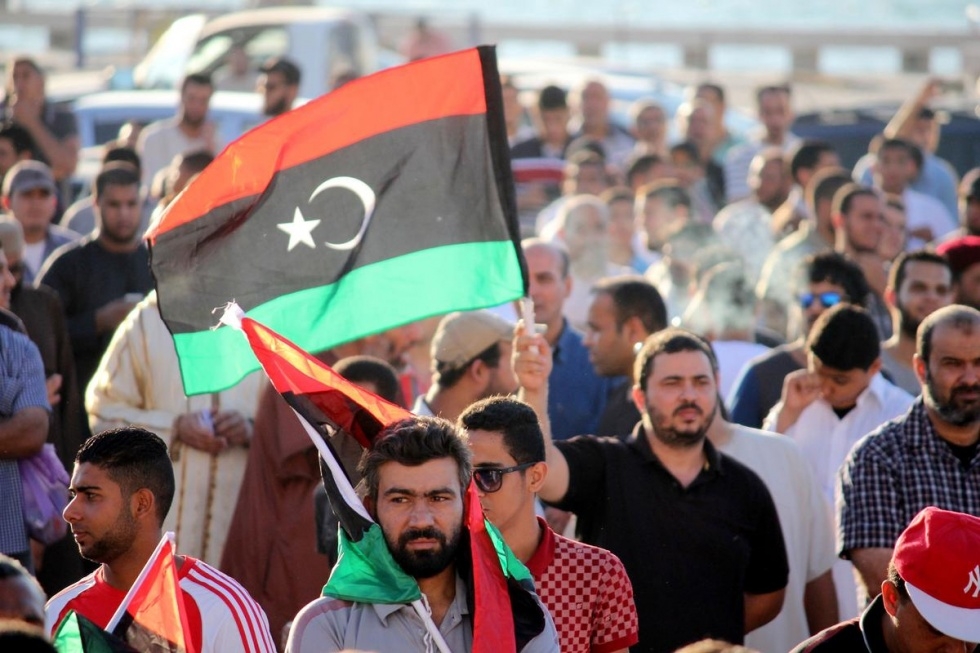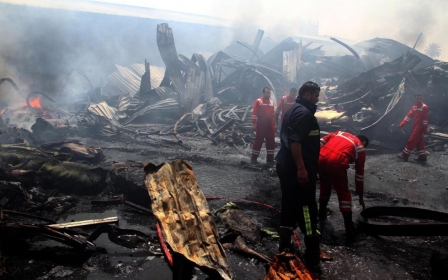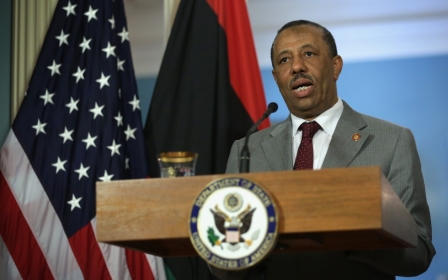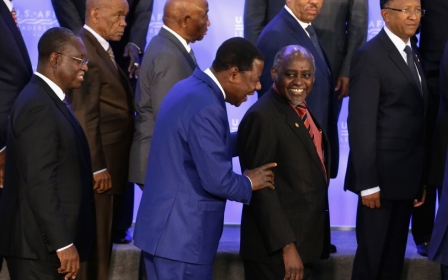Libya’s summer of sadness

Just three years ago, the streets of Libya were filled with crowds of jubilant citizens, unified to celebrate their liberation. Cheers of “Libya ahrar” or “Libya’s free” echoed from Tripoli to Benghazi, and everywhere inbetween. The end of a hard-fought revolution. The end of 42 years of fear and oppression. Most importantly, the end of their “brother leader”, Muammar Gaddafi.
The sense of relief and joy at the end of the fighting was palpable, not only had many Libyans lost sons and brothers in the fighting, but a whole generation of young war widows also emerged, left to fend for themselves and their children in a highly patriarchal society. But for others, the suffering stretched back much further than the eight months of the revolution. Gaddafi’s regime was ruthless: Libyans lost family members in prison massacres and abductions; women were forced into depraved harems and even Libyans abroad were targeted through Gaddafi’s “stray dogs campaign”. For many Libyans the revolution was incredibly personal.
The revolution began in the east and rapidly gained momentum, like a bush fire spreading from city to city unable to be snuffed out, despite Gaddafi’s loyalist forces’ best efforts. Iman Mustafa, a 35-year-old primary school teacher, told MEE: “It was as though we were waking up from a 42-year-long nightmare. We couldn’t even say his name publicly for fear of the secret police, now we can shout it freely from the rooftops.” One visible manifestation of this new-found freedom was the street art and graffiti that covered the walls of the capital – bold colours denouncing the dictator and ushering in new hope.
Libya underwent its “Arab spring” as part of a domino effect in North Africa, with both neighbours, Tunisia and Egypt, also undergoing popular uprisings. Libya was hailed by international commentators as the success model of the Middle East and North Africa region, having so promptly bounced back and adapted to meet the new challenges of a fledgling democracy. But this summer, for the first time, Libya has lost its balance.
Petty self-interests
The high number of localised militias, awash with weapons, and refusing to assimilate into a national army has been a huge factor in Libya’s instability. Libyan civilians look on as regional militias fight it out on the streets for their own petty self-interests. Meanwhile, in the east, Islamists, nationalists and federalists play tug-of-war with devastating consequences for the locals caught in the crossfire, or those brave enough to put their heads above the parapet. The case of Salwa Bugaighis, lawyer and civil rights activist, termed by some “mother of the revolution”, who was brutally murdered in her own home in June and her husband abducted, sent shockwaves around the world.
Once again, it’s the people of Libya who bear the brunt, as they watch their precious revolution unravel and their towns plunge into chaos. This has truly been a summer of sadness for Libya.
The reflective eye of history will no doubt judge that a plethora of factors are to blame, notably: a succession of weak leaders and impotent factionalised governments; a failure to disarm and assimilate local militias; the cosmetic interest of foreign powers; as well as financial mismanagement and tribalism. These factors have turned this summer into the perfect storm, as events have spun so quickly out of control.
Mohammed Suwair, 55, told MEE: “We have no electricity, no fuel, no water and rocket noises keep our children awake every night … it’s like being in jail, but with fewer necessities.”
Many Libyans have suffered through this hot summer and the month of Ramadan with little or no amenities. Those who work with international organisations have watched as their colleagues hastily pack up and leave, with many, including the US and British embassies, arranging emergency transport to evacuate their nationals. Equally, humanitarian agencies, including the UN, have disappeared when their assistance is so keenly required. Faced with this, many Libyans have made the arduous journey to the Tunisian border in order to seek refuge there. Others have flown to Cairo or Istanbul, from the remaining functioning airports, as Tripoli International remains a primary site for the fighting between the Zintan and Misratan militias.
Fatima Noor, a mother of five, said: “It’s been worse than during the revolution, now Libyans are fighting each other for no reason.” She continued, “But among ourselves the neighbourhood ties have strengthened, as we share food, fuel and water from each other’s wells. People are showing so much kindness, and this is the true Libyan spirit not the mercilessness of the militias.”
The newly constituted House of Representatives has been inaugurated this week, born amid instability and with many Islamist-aligned members still refusing to recognise its legitimacy and boycotting the House. Despite this, it has managed to meet in the relatively peaceful city of Tobruk and one of its first mandates has been to call for a ceasefire between rival militias, and seek support from the United Nations Special Mission in Libya (UNSMIL) to broker negotiations between the warring factions. This is surely a step in the right direction.
Despite the rapid downturn of events, Libya is not by a long stretch a “failed state” nor is it on the brink of civil war. For a country that suffered for over four decades at the hands of a brutal dictator, Libya needs time and patience. Like other post-revolution countries, it must be given more support and time to flex its nascent state apparatus. It is through the endurance of these difficult times that Libya will grow in order to succeed. When the Berlin Wall fell in 1989, Europe celebrated the end of communist rule in East Berlin, but long after the celebrations had finished and international allies busied themselves elsewhere, the real hard work of crafting a new state and forging a unified national identity began. It is much the same in Libya. The revolution cannot go to waste and it is up to the Libyan people to claim back their revolution and their hard-won freedoms, in order to build a future worthy of themselves.
- Adela Suliman is a lawyer and freelance journalist and has lived in Libya since 2012. Follow her on Twitter @ASBIntBattuta.
The views expressed in this article belong to the author and do not necessarily reflect the editorial policy of Middle East Eye.
Photo credit: A libyan holds national flag during the protest against the newly elected parliament on August 8, 2014 in Benghazi, Libya
New MEE newsletter: Jerusalem Dispatch
Sign up to get the latest insights and analysis on Israel-Palestine, alongside Turkey Unpacked and other MEE newsletters
Middle East Eye delivers independent and unrivalled coverage and analysis of the Middle East, North Africa and beyond. To learn more about republishing this content and the associated fees, please fill out this form. More about MEE can be found here.





